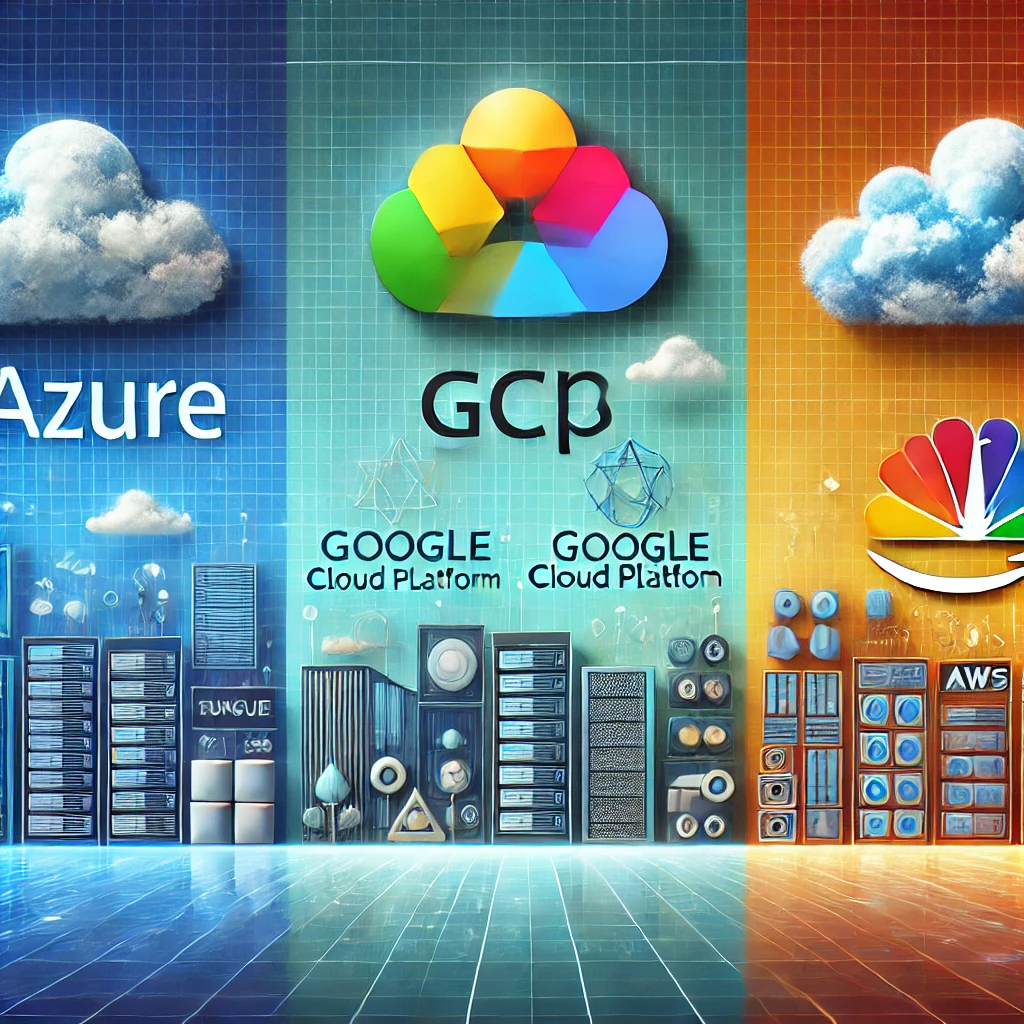Comparing Azure, Google Cloud Platform (GCP), and Amazon Web Services (AWS)
Introduction
Cloud computing has revolutionized the way businesses operate, offering scalable and flexible solutions for a wide range of IT needs. In this article, we’ll compare three leading cloud providers: Microsoft Azure, Google Cloud Platform (GCP), and Amazon Web Services (AWS).
Market Position
AWS: The pioneer and market leader, known for its extensive service offerings and global reach.
Azure: Strong second player, leveraging Microsoft’s enterprise relationships and integrated services.
GCP: A formidable competitor, particularly strong in data analytics and machine learning.
Key Services
Compute
AWS: Amazon EC2
Azure: Azure Virtual Machines
GCP: Google Compute Engine
Storage
AWS: Amazon S3, EBS
Azure: Azure Blob Storage, Azure Disk Storage
GCP: Google Cloud Storage, Persistent Disk
Database
AWS: Amazon RDS, DynamoDB
Azure: Azure SQL Database, Cosmos DB
GCP: Cloud SQL, Cloud Spanner
Networking
AWS: Amazon VPC
Azure: Azure Virtual Network
GCP: Virtual Private Cloud (VPC)
Strengths
AWS
Widest range of services
Extensive global infrastructure
Mature ecosystem and community support
Azure
Strong integration with Microsoft products
Hybrid cloud capabilities
Competitive enterprise-level agreements
GCP
Advanced data analytics and machine learning tools
Strong performance and pricing for compute-intensive tasks
Innovative networking technologies
Pricing
All three providers offer competitive pricing with various models (pay-as-you-go, reserved instances, spot instances). GCP is often perceived as the most cost-effective for certain workloads, while AWS and Azure offer more granular pricing options.
Global Reach
AWS: Largest number of regions and availability zones
Azure: Strong presence in China
GCP: Fewer regions but strategic global network
Ease of Use
AWS: Comprehensive but can be complex for beginners
Azure: User-friendly interface, especially for Windows-centric organizations
GCP: Clean, intuitive interface with a focus on simplicity
Conclusion
Choosing between Azure, GCP, and AWS depends on specific business needs, existing technology stacks, and required features. AWS offers the broadest set of services, Azure provides seamless integration with Microsoft tools, and GCP excels in data analytics and machine learning. Organizations should carefully evaluate their requirements and potentially use a multi-cloud strategy to leverage the strengths of each provider.




